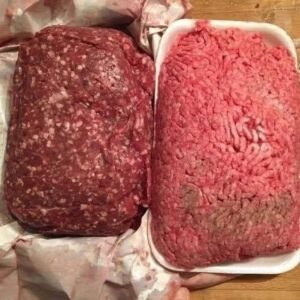Democrats have spent the last several weeks of the Schumer Shutdown claiming the USDA has contingency funding it could use to keep food stamp benefits flowing beyond Nov. 1.
House Minority Leader Hakeem Jeffries (D-N.Y.) made that argument again Wednesday, saying the administration “has the funding to make sure that not a single American on November 1st or beyond goes hungry.”
“They have the money,” Jeffries said. “But they are choosing to withhold funding for SNAP because they want to punish hungry children, hungry veterans, hungry seniors, hungry women, and hungry families as part of their continued effort to hurt everyday Americans.”
At a House GOP press conference Friday, however, Speaker Mike Johnson (R-La.) and USDA Secretary Brooke Rollins sharply pushed back, calling Jeffries’ claim an outright lie.
The event also focused on addressing waste, fraud, and abuse in the Supplemental Nutrition Assistance Program, efforts that Democrats in both chambers have opposed.
Rollins said the controversy has exposed how Democrats’ self-image as “the party of the people” has collapsed, calling their supposed defense of SNAP “reduced to cynical control over people’s lives.”
“The fact that the Democrats are saying, ‘But wait, USDA has money in their accounts’ … is a lie,” Rollins said during the news conference.
She confirmed that the USDA had twice notified state administrators in October that SNAP benefits would end Nov. 1 if Congress failed to fund the government.
Rollins also said the $5.3 billion contingency fund cited by Democrats was not enough to cover the $9.2 billion needed for November benefits.
“There is a contingency fund at USDA,” Rollins said. “But it is only allowed to flow if the underlying program is funded.”
She explained that the appropriations bills for SNAP and other programs remain stalled because the Senate has not passed the House’s stopgap bill to fund the government through Nov. 21 and allow negotiations to continue.
In short, the USDA cannot release contingency funds without Congress first approving the underlying funding.
Republicans say the real issue is Democrats’ refusal to reopen the government and pass the clean continuing resolution approved by the House on Sept. 19.
Funding programs like SNAP, they argue, is Congress’s duty — not the USDA’s.
Democrats, meanwhile, have voted 14 times in the Senate to block reopening the government, citing demands over healthcare for illegal immigrants and the continuation of enhanced Affordable Care Act subsidies.
But the legal fight took a dramatic turn late Friday when two federal judges — in Massachusetts and Rhode Island — ordered the Trump administration to release the USDA’s emergency reserves to help fund November SNAP benefits.
The rulings rejected the agency’s position that the contingency fund could not be used during the shutdown.
U.S. District Judges Indira Talwani and John McConnell, both appointed by former President Barack Obama, said the USDA had the authority to tap roughly $5.3 billion in reserves, even if that amount wouldn’t fully cover November benefits.
They also noted the administration could pull from nearly $17 billion in additional accounts to avoid benefit cuts, though officials have argued that doing so would impact other nutrition programs.
“There is no doubt that the contingency funds are appropriated funds that are necessary to carry out the program’s operation,” McConnell said.
Talwani added that the administration “may supplement the Contingency Funds by authorizing a transfer of additional funds … to avoid any reductions.”
Even with the court orders, USDA officials warned that state systems may not be able to restart SNAP payments immediately.
SNAP benefits were supposed to start going out Nov. 1, but the scramble to comply with the rulings could cause delays for millions of families.
“All the Democrats have to do is say, let’s go,” President Donald Trump said. “They don’t have to do anything — all they have to do is say the government is open.”





